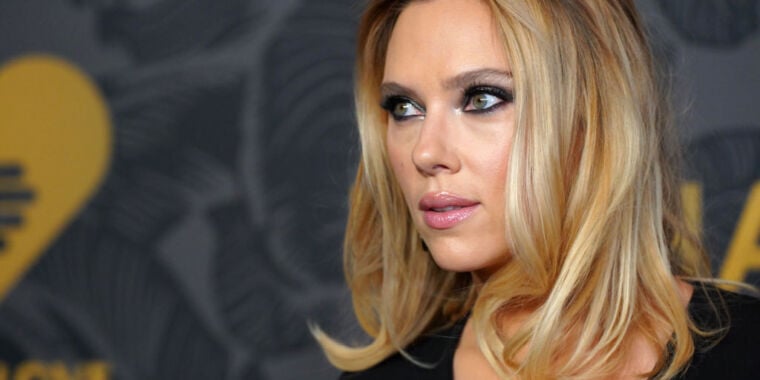OpenAl is sticking to its story that it never intended to copy Scarlett Johansson’s voice when seeking an actor for ChatGPT’s “Sky” voice mode.
This all “feels personal," the voice actress said, "being that it’s just my natural voice and I’ve never been compared to her by the people who do know me closely.”
This comes at a time when many studios are otherwise intrigued by the idea of using AI for things like digital effects but remain, after a long history of avoiding copyright conflicts, hesitant to connect with any company potentially viewed as stealing artists’ work without consent, Reuters reported.



According to Cornell, parody is protected under freedom of speech as long as it qualifies as fair use. Perhaps impersonating Johansson may not be considered fair use, but what about impersonating her robot movie character? https://www.law.cornell.edu/wex/parody
Parody is supposed to be comedic in nature. This is not.
Look up parody in the dictionary, 'cause that isn’t what it means.
I mean maybe you should be looking it up in case law, because what it means in a dictionary is irrelevant relative to case law.
If the voice actor actually made an obvious parody of the HER voice (as an example giving it an over the top southern drawl to subvert expectations about southern ludditism) but parodies can’t just be “like that thing but we hired a cheaper voice actor”.